EDF Energy’s Hinkley Point B nuclear power station, in Somerset, England. (Photo: EDF Energy)
By all accounts the most productive nuclear power plant in British history, Somerset’s Hinkley Point B station closed for good on August 1, with the shutdown of its B1 unit, a 485-MWe advanced gas-cooled reactor. (The plant’s B2 unit, a 480-MWe AGR, was shuttered early last month.)
The station employed around 500 staff and 250 contractors and contributed approximately £40 million (about $48.7 million) per year to the Somerset economy, according to EDF Energy, owner and operator of the United Kingdom’s power reactor fleet.
Unit 3 at the Vogtle site in July 2022. (Photo: Georgia Power)
The Nuclear Regulatory Commission has authorized Vogtle plant operator Southern Nuclear to load fuel and begin operation at Unit 3—the first reactor to reach this point in the agency’s combined license process. (Prior to 1989, reactors were licensed under a two-step process, requiring both a construction permit and an operating license.)
Signing the letter of agreement, from the left, are Damian Jamroz, Last Energy Polska general manager; Ryszard Wawryniewicz, LSSE vice president; Piotr Danielski, DB Energy vice president; and Dominik Brach, DB Energy CEO. (Photo: LSSE)
Last Energy, a Washington, D.C.–based small modular reactor startup, has signed a letter of intent with Poland’s Legnica Special Economic Zone (LSSE) and DB Energy for a power plant featuring 10 small modular reactors with 200 MWe of capacity to fuel the region’s industrial activities. (Established in 1997, the LSSE covers 18 subzones located in the central part of southwestern Poland’s Dolnośląskie Province and is home to more than 75 companies providing some 16,000 jobs.)
America’s nuclear navy presently has 86 nuclear-powered submarines and aircraft carriers. All of them, and their predecessors over the last 60 years, have performed flawlessly, protecting America as well as their crews. Here, the nuclear submarine USS Seawolf leads the nuclear-powered aircraft carrier USS Nimitz and the conventionally powered Japan Maritime Self-Defense Force destroyer JS Oonami DD 111 during exercises in 2009. (Photo: United States Navy)
Just this last April, President Biden officially commissioned the USS Delaware, a new Virginia-class nuclear attack submarine, the 18th built in that class and the eighth and final Block III Virginia-class submarine. (The Delaware was administratively commissioned in April 2020, but the COVID-19 pandemic caused delay of the ceremony for two years.)
An artist's rendering of the NuScale plant. (Image: NuScale Power)
The Nuclear Regulatory Commission has directed its staff to issue a final rule certifying NuScale Power’s small modular reactor design for use in the United States, the agency announced last Friday.
Certification of the Portland, Ore.–based SMR developer’s design will become effective 30 days after publication of the rule in the Federal Register. The design will be incorporated as Appendix G to 10 CFR Part 52, Licenses, Certifications, and Approvals for Nuclear Power Plants.
An approach to future plant fabrication and siting suitable for many reactor types and scales, with large potential worldwide benefits
July 29, 2022, 3:25PMNuclear NewsMichael Golay, Jacopo Buongiorno, and Neil Todreas The offshore plant combines two mature technologies: the floating rig and the nuclear reactor.
In recent years, the rate of building new nuclear power plants has slowed internationally except in some rapidly developing countries. In Western countries that have considerable experience with nuclear power, completion of new projects on time and on budget has become more difficult. Shipyard-fabricated plants may offer a new direction for meeting international needs and responding to requirements for better cost control and safety. In this article we offer an overview of the floating nuclear power plant concept, including experience with it to date and its key engineering and strategic features, along with related uncertainties and needed conditions for future projects to be successful.
The Doel nuclear power plant in Belgium along with the De Molen windmill in foreground. (Photo: Trougnouf)
The Belgian government has signed a nonbinding letter of intent with Electrabel, a subsidiary of the French utility Engie, to keep nuclear a part of Belgium’s energy mix for an additional 10 years.
Electrabel operates Belgium’s two nuclear power plants, the four-unit Doel and three-unit Tihange.
Indian Point nuclear power plant. (Photo: Daniel Case)
“If we’re serious about dealing with climate change, then we’re going to need all the tools in the toolbox, which includes nuclear, not just now but in the future,” Keith Schue, an electrical engineer affiliated with Nuclear New York is quoted as saying in an article on the (Lower Hudson Valley) Journal News website, lohud. Schue adds, “We do believe that closing Indian Point was a mistake. But are we going to continue making mistakes or can we learn from them?”
Romania’s Cernavoda Units 1 and 2. (Photo: Nuclearelectrica)
Romania’s Nuclearelectrica, the state-owned operator of the two-unit Cernavoda nuclear power plant, has awarded Candu Energy a contract to conduct design and engineering services for the facility’s Unit 1 refurbishment project, according to an announcement last week from SNC-Lavalin, Candu Energy’s parent company.
A rendering of the Clinch River breeder reactor project.
DISCLAIMER: The views expressed in this article are those of the author and do not necessarily reflect the views of the American Nuclear Society.
To provide a place for constructive conversation and exchange of ideas, I have built the website lmfbr.com. There, interested persons will find a description of the liquid metal fast breeder reactor technology and an outline of its history. The site is intended for an audience already generally familiar with light water reactors—but most particularly, it is meant to encourage comments so that the community can identify a pathway for deployment of LMFBRs through a conceptual design and institutional approach that draws upon collective experience, recent innovation, and re-visitation of approaches previously considered that have been long lying dormant. The website is also intended to suggest areas where further creative thought could be directed to improve the economic and operational performance of the LMFBR concept to make it highly competitive with LWRs.
Holtec’s Advanced Manufacturing Division, in Camden, N.J. (Photo: Holtec)
The Department of Energy earlier this year approved part one of a loan application from Holtec International for small modular reactor construction and invited the firm to apply for a loan to help build four of its SMR-160 units and grow its manufacturing capacity to produce the first wave of SMRs.
A view of the entrance to tower #22, showing the dismantled part of an inclined column.
While the construction of two additional reactors at Slovakia’s Mochovce nuclear plant (Units 3 and 4) may get most of the attention, it isn’t the only major project underway there. In October of last year, plant owner Slovenské Elektrárne commenced the first phase of an effort to revitalize two of the four 125-meter-tall, Iterson-type cooling towers that serve the facility’s two operating reactors—both of which began generating electricity in the late 1990s. Towers #11 and #21 had been refurbished in 2011 and 2012, respectively. The other two, however, towers #12 and #22, had never undergone refurbishment.
A computer-generated rendering of the Sizewell site on the Suffolk coast. Sizewell A and B are to the left and center (respectively) in this image; the section to the right is the Sizewell C area. (Image: EDF Energy)
The U.K. government has granted a development consent order (DCO) for EDF Energy’s proposed Sizewell C plant near Leiston in Suffolk, moving the new nuclear build project closer to a reality.
Nuclear New Build (NBB) Generation Company, an EDF Energy subsidiary, submitted the DCO application to the government’s Planning Inspectorate in May 2020, setting out the range of measures the project would implement to mitigate construction effects and maximize community benefits. The Planning Inspectorate accepted the application in June 2020 and completed its examination in October 2021. Recommendations were made to the secretary of state for business, energy, and industrial strategy this February.
Darlington's refurbishment to be aided by Green Bond Framework funds. (Photo: OPG)
Ontario Power Generation has updated its Green Bond Framework to include nuclear energy in recognition of the role the technology stands to play in helping the company reach its decarbonization goals. (OPG’s climate change plan, established in 2020, commits the firm to achieving net-zero carbon emission status by 2040.)
The green bonds issued by the utility and its subsidiaries are used to finance and/or refinance certain energy projects and support the development of clean technologies.
Artist's rendering of Shin-Hanul Units 3 and 4. (Image: KHNP)
South Korea’s new president, Yoon Suk-yeol, appears to be following through on his campaign pledge to reverse the previous administration’s domestic nuclear phaseout plan. Earlier this month, Yoon’s Ministry of Trade, Industry, and Energy announced a new direction for the nation’s energy policy—one that calls for, among other things, a reembrace of nuclear power. A further announcement on the subject last week provided additional details.
A view of Palo Verde-3 and a spray pond, as seen from Unit 2. (Photo: APS)
In the western part of Michigan, where I grew up and spent the early part of my career, water availability was rarely a concern or a topic that might appear in the news. Lake Michigan was a plentiful source of water, and Mother Nature always provided plenty of precipitation to keep things green. If anything, sometimes folks wished it would stop raining! So it was quite a big change in environment when in 2008 my career took me to the desert of Arizona and the Palo Verde Generating Station, with annual regional rainfall totals of three inches in a good year.
Artist’s rendering of a Rolls-Royce SMR plant. (Image: Rolls-Royce SMR)
U.K.-based reactor developer Rolls-Royce SMR last week announced a list of six potential sites for its first small modular reactor factory. According to the company's announcement, the factory—the largest and most complex of three such facilities envisioned by the company—will manufacture the SMR vessels.
Rendering of a VOYGR plant. (Image: NuScale)
NuScale Power and Paragon Energy Solutions have signed a patent license agreement that will make NuScale’s Nuclear Regulatory Commission–approved reactor protection system architecture available to the broader nuclear industry, the two companies announced on July 12.
Known as the Highly Integrated Protection System (HIPS) platform, the system was developed by NuScale and Rock Creek Innovations (RCI), a hardware supplier of commercial nuclear protections systems, over six years of collaboration that began in 2010. Paragon, a supplier of safety-related parts and components, acquired RCI in December 2021.
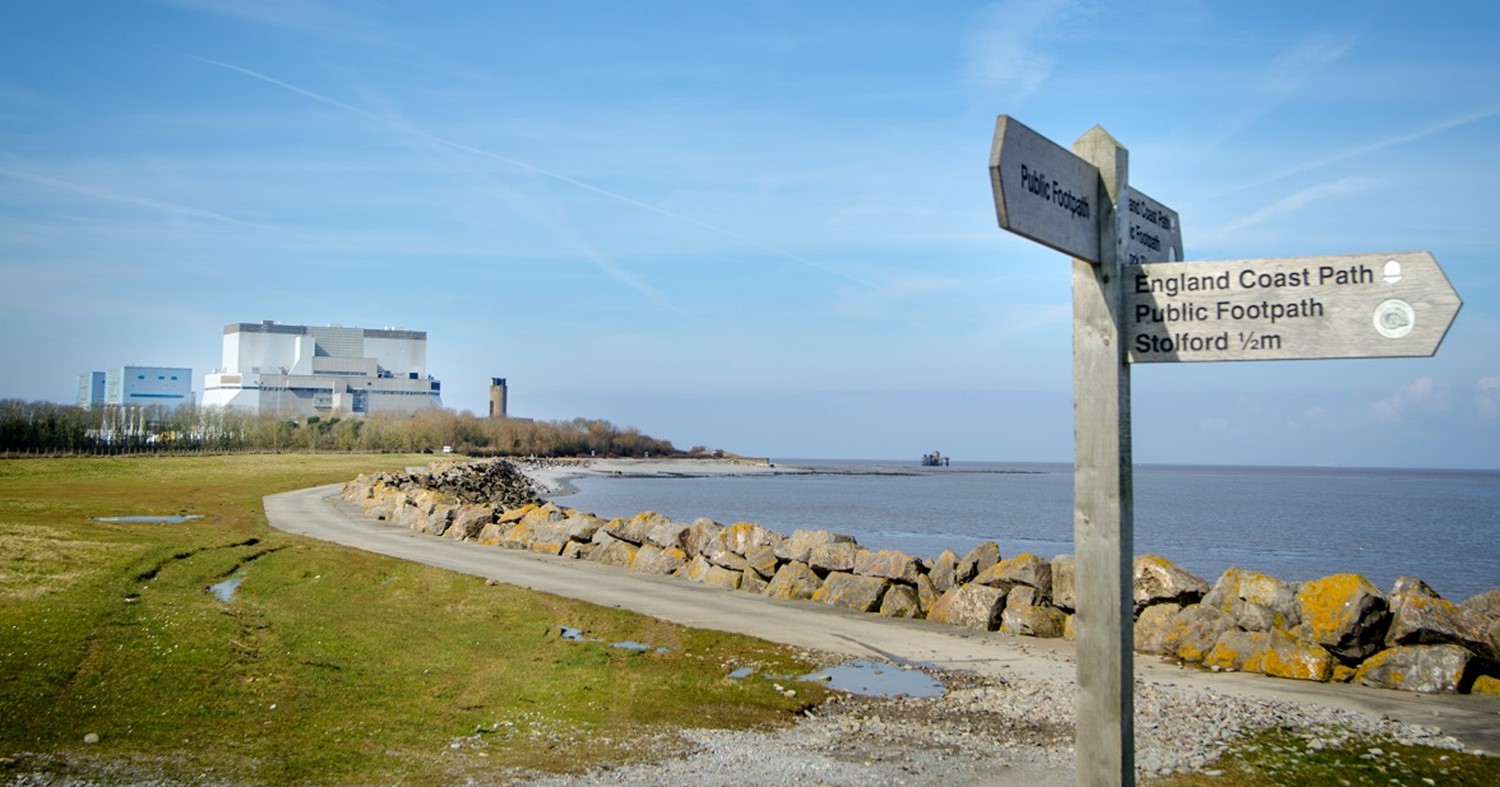



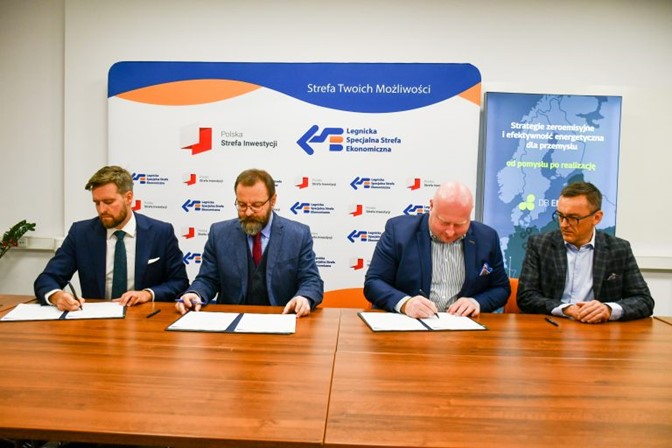
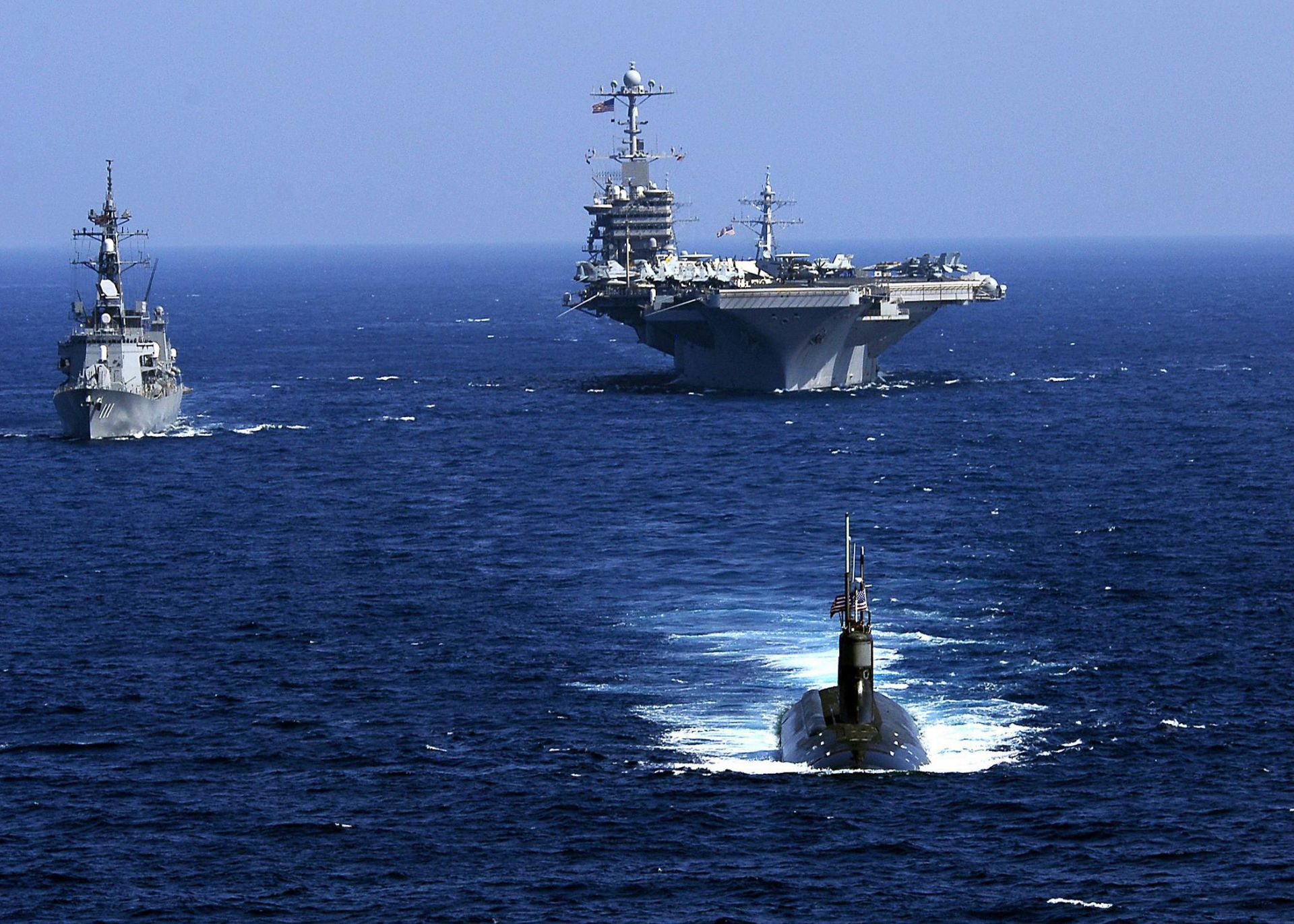




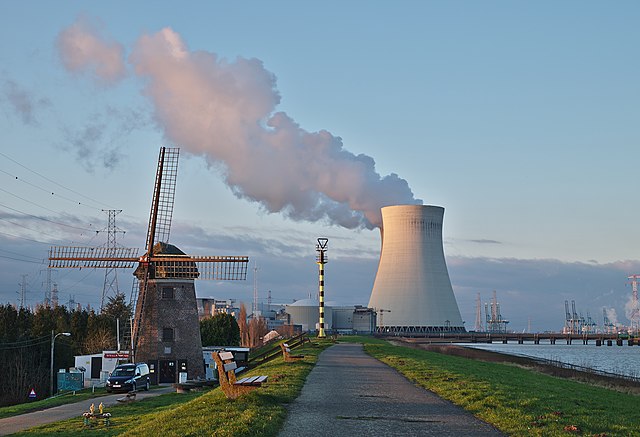.jpg)



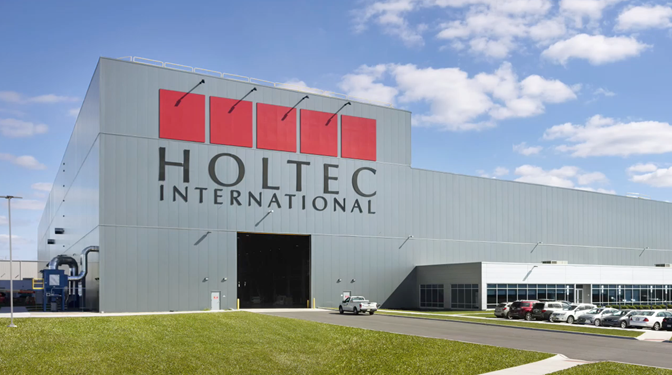

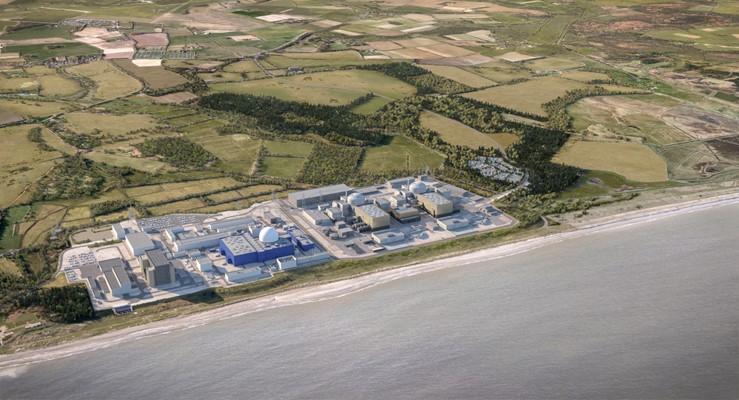

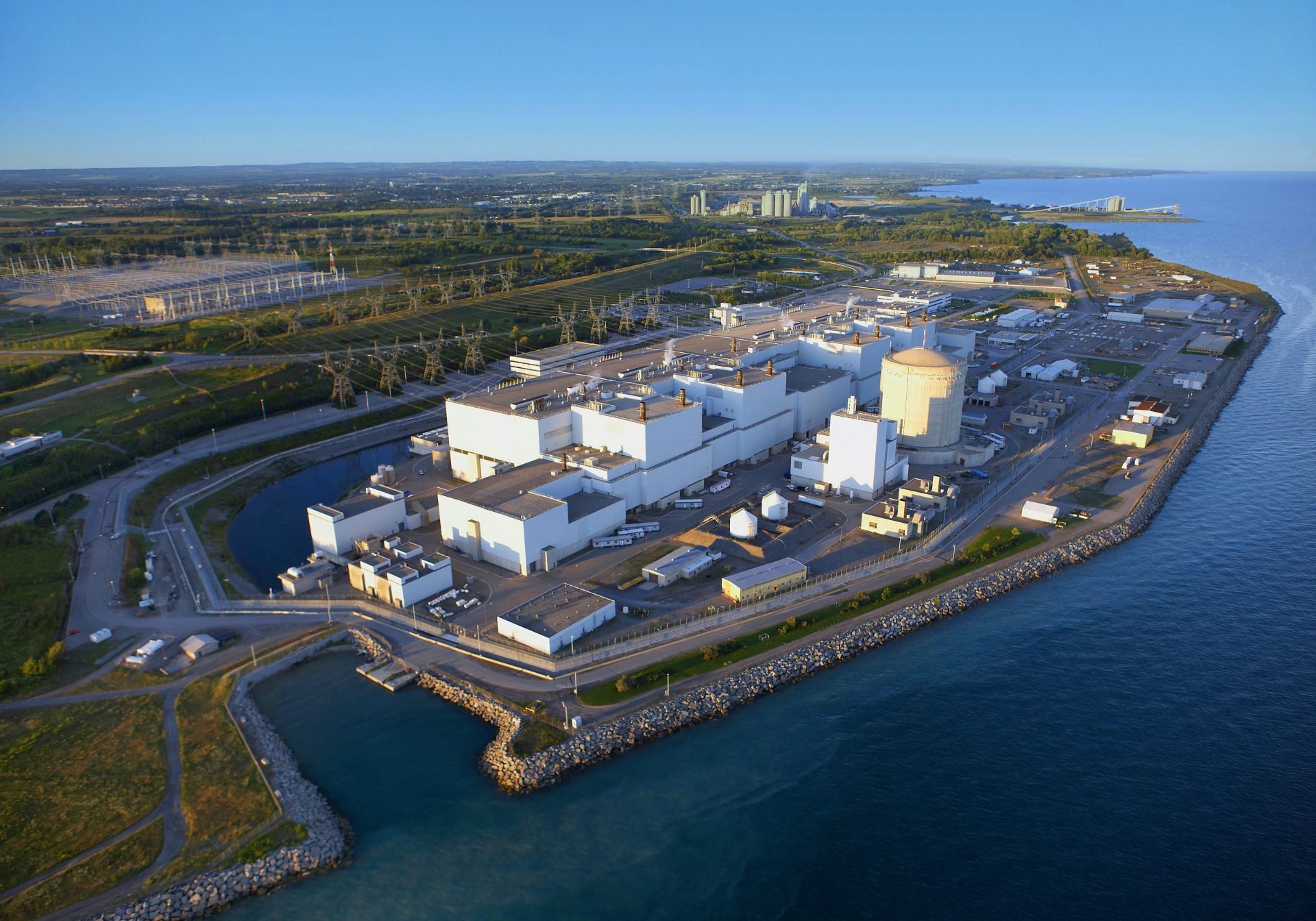
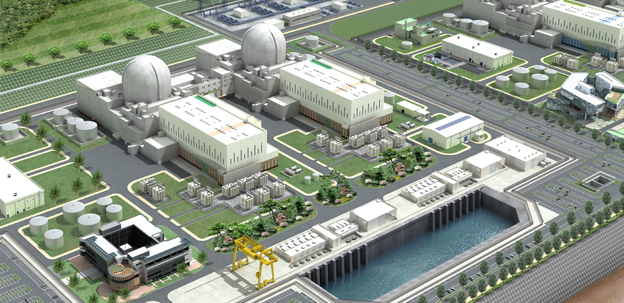

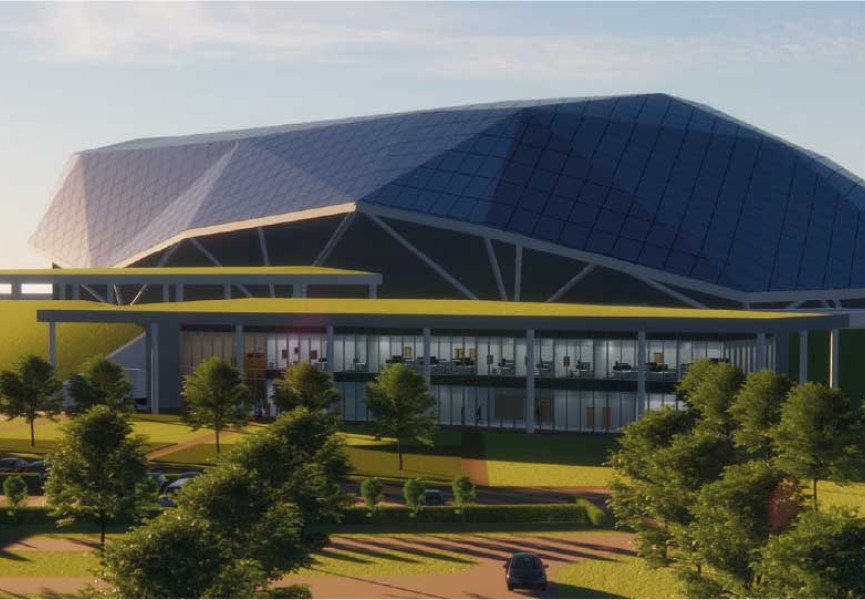.jpg)
